The future of the publishing industry
The Colloquium The Future of Publishing of 2019 ended with resounding success, fulfilling the most important objective of our organization: to bring together the professionals of the publishing industry in Spanish and Portuguese (all presentations can be downloaded here: https://entreditores.net/presentaciones-speakers-coloquio-2019/) for two intense days of updating and reflection on the transformation of the book industry.
Argentine publishers isolated themselves from the economic and political context of the country for a moment, and in a learning bubble they received a high amount of content, such that they could barely follow on their notebooks. The Spanish consultant Antonio Martín opened the Colloquium with a novel idea: “What if a bestseller from now on is no longer the one that appears in the famous general lists of the publishing market, but the one that manages to sell to 100% of their niche, however specific it may be?”
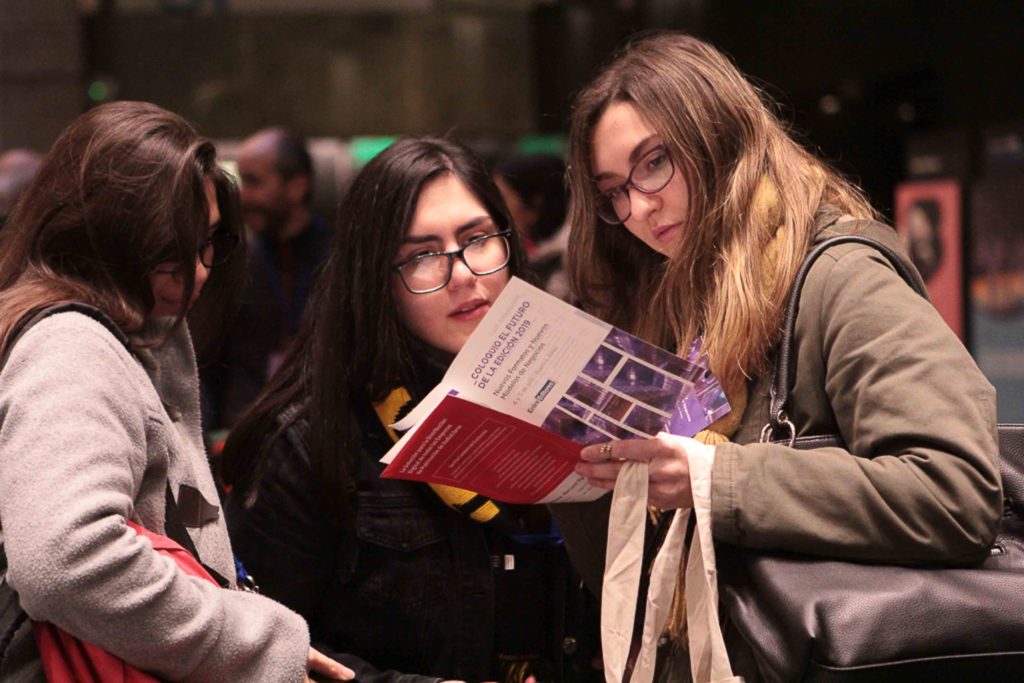
He was followed by Katey Townsend, marketing manager at Wattpad, the world’s largest writing and reading platform. In Argentina alone they have 1.5 million users, in a universe of 70 million in more than 50 languages. Mostly women and young people. Wattpad developed advanced technologies, such as “Story DNA,” a machine learning system, which looks for patterns in vocabulary, grammar, sentence structure, etc, to identify the emotional impact of stories written and read by users, to understand how their interest works regarding genres and subgenres, extension and style. Users-readers will thus receive directly on their cell phones selected stories according to their profile, which they will surely like. They have come to understand so much about their readers that they have decided it was time to open their own publishing house, last January 2019.
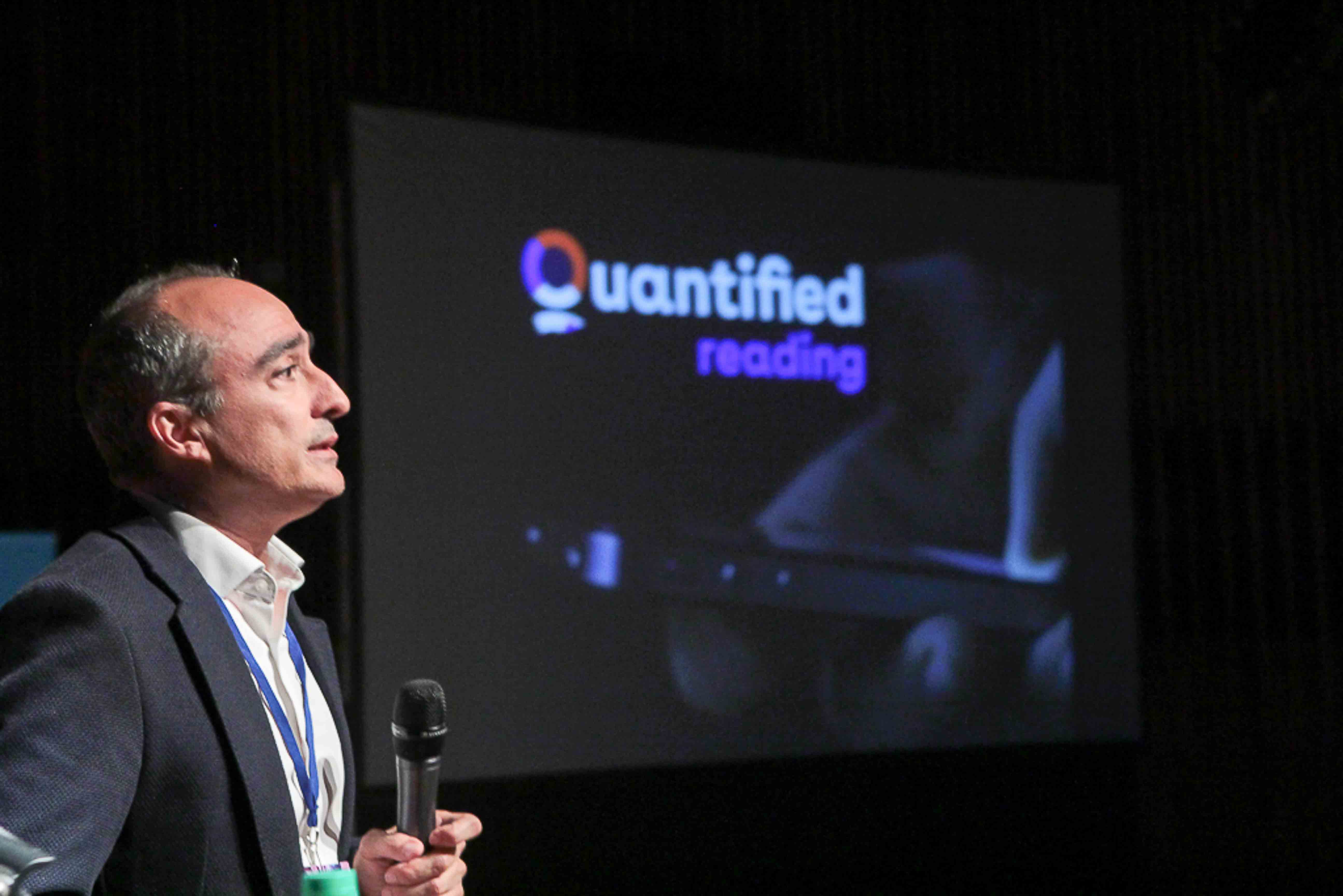
David Sánchez, one of the founders of 24Symbols, the global pioneer platform in the book subscription model, took the stage to continue the topic that was already becoming the central axis of the Colloquium: the publishers will no longer sell books, but rather we will seek to seduce readers to choose our books, instead of the next chapter of a Netflix series. David also announced the creation of a new company based on data-mining technologies, Quantified Reading, whose vision is that of “A community with a flexible offer of digital reading services, which squeezes the possibilities of the devices to build effective and relevant reading experiences to match readers’ goals”. It sounds as the mission of a publishing house who needs to keep up to date with the times.
With so much technology and future experiences, the Colloquium continued with an open dialogue between two publishers specialized in children’s books, one with a long history in Santillana, María Fernanda Maquieira, and the Colombian guest, María Osorio, founder of Babel, distributor and independent publisher. She was the one who took the biggest applause of the afternoon, by questioning cultural officials across the continent who buy or stop buying books for schools and libraries without judgment and without too much care, while the publishers works “on demand” of these government programs, while forgetting the fundamental role of bookstores.
The first day culminated with a true stage show by Alberto Achar, marketing manager of the Mexican bookstore chain Gandhi. Achar showed the public their most famous advertising campaign on the continent, which had one goal: to encourage reading. With a sense of humor and creativity, Gandhi reinstalled it’s brand, placing huge posters on great avenues of Mexico City and others to reposition it, surpassing it’s image of an intellectual temple, and open their stores to new readers, a crucial objective in a Mexico of very low reading rates.
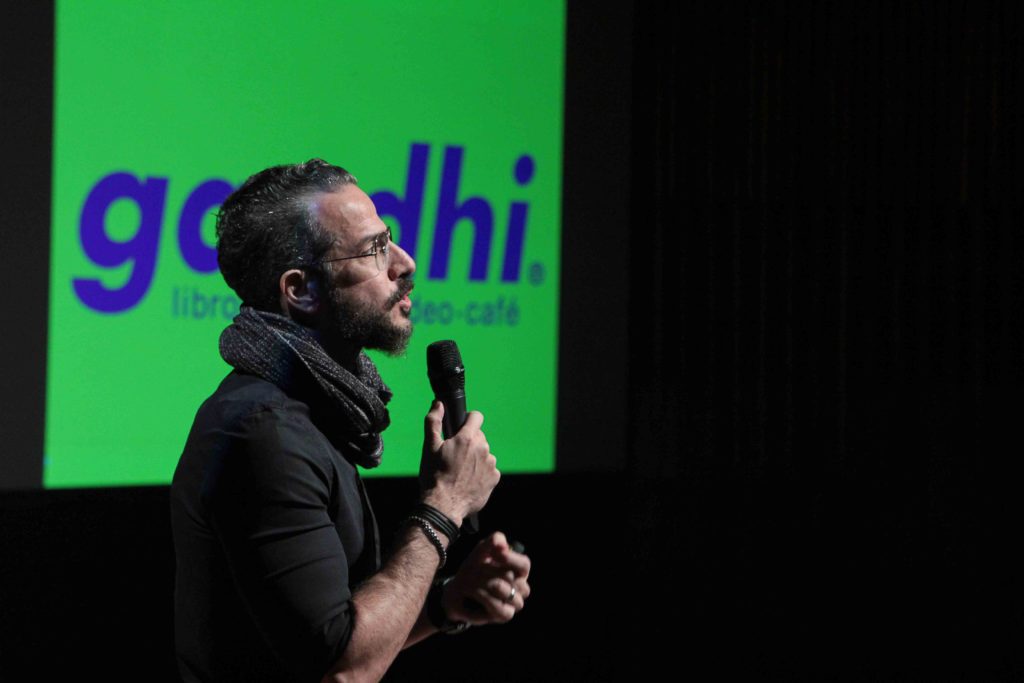
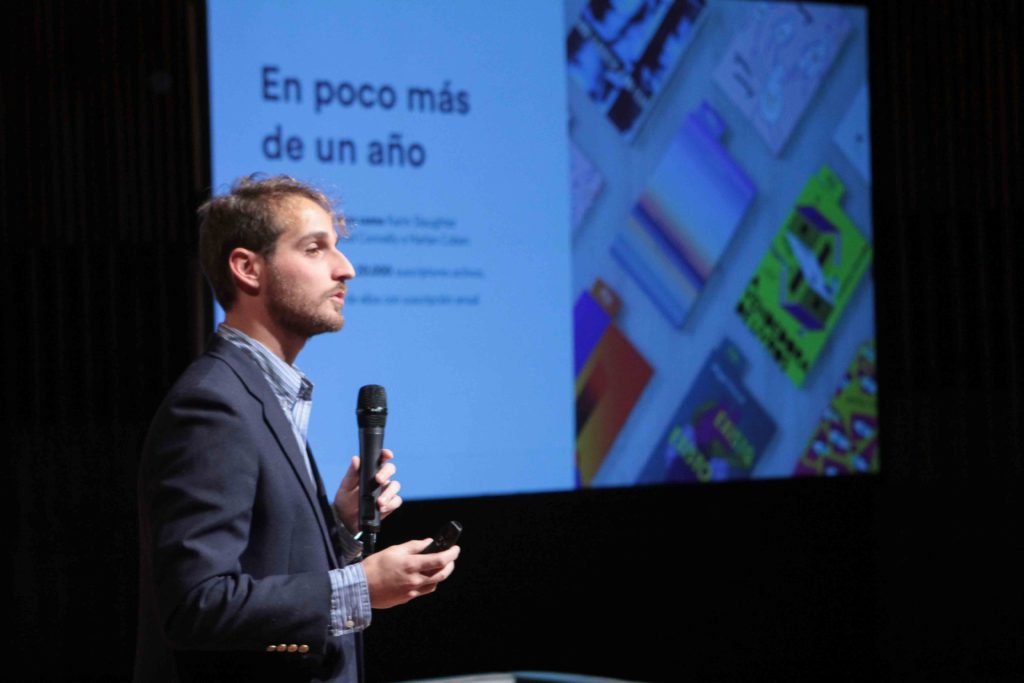
The same challenge of developing the business in a country of «non-readers» like Brazil, was the theme of Gustavo Lembert‘s intervention. He presented TAG Literary Experiences, a renewed version of the book club concept: a subscription model to a monthly surprise box, with two options: «curatorship», a book selected by a writer of prestige and fame; and “unpublished”, a new book, in a prepublication agreement with the publisher, to sell to a base of more than 48,000 subscribers, a figure they have reached in just 5 years.
The presentation of Pablo Dittborn was the necessary counterpoint for the sincere perception of our business, in our countries. Dittborn spoke of the Chilean market, to which he added his long career in Argentina as publisher and manager of international houses such as Javier Vergara, Ediciones B and Penguin Random House. He defended the VAT on books in Chile, with an explanation of a difficult and unequal market: the whole advantage of a VAT elimination said Dittborn, will only benefit the rich, since the price of the books will not fall and therefore not will achieve the goal sought. In this regard, he praised the Bibliometer, a successful reading incentive program promoted by the National Public Library System of Chile. Free and available to everyone, the program installed libraries – showcases in subway stations, where people can borrow a book and in 90% of cases, they return it.
The Colloquium followed with one of the most anticipated presentations of the program: Audiobooks, by Michele Cobb, Executive Manager for more than 15 years of the Audio Publishers Association of the United States (APA). Michele has witnessed the birth and spectacular growth of this format, which already makes 50% of the young and adult American population have heard at least one audiobook in the last year. Statistics show that people listen to books creating «new time,» for them, and even more importantly, that «listeners» were not necessarily readers of printed books, not even e-books. They listen to audiobooks mostly in their cars, followed by while they travel; also 50% of consumers are between 18 and 45 years old and they are all podcast consumers.
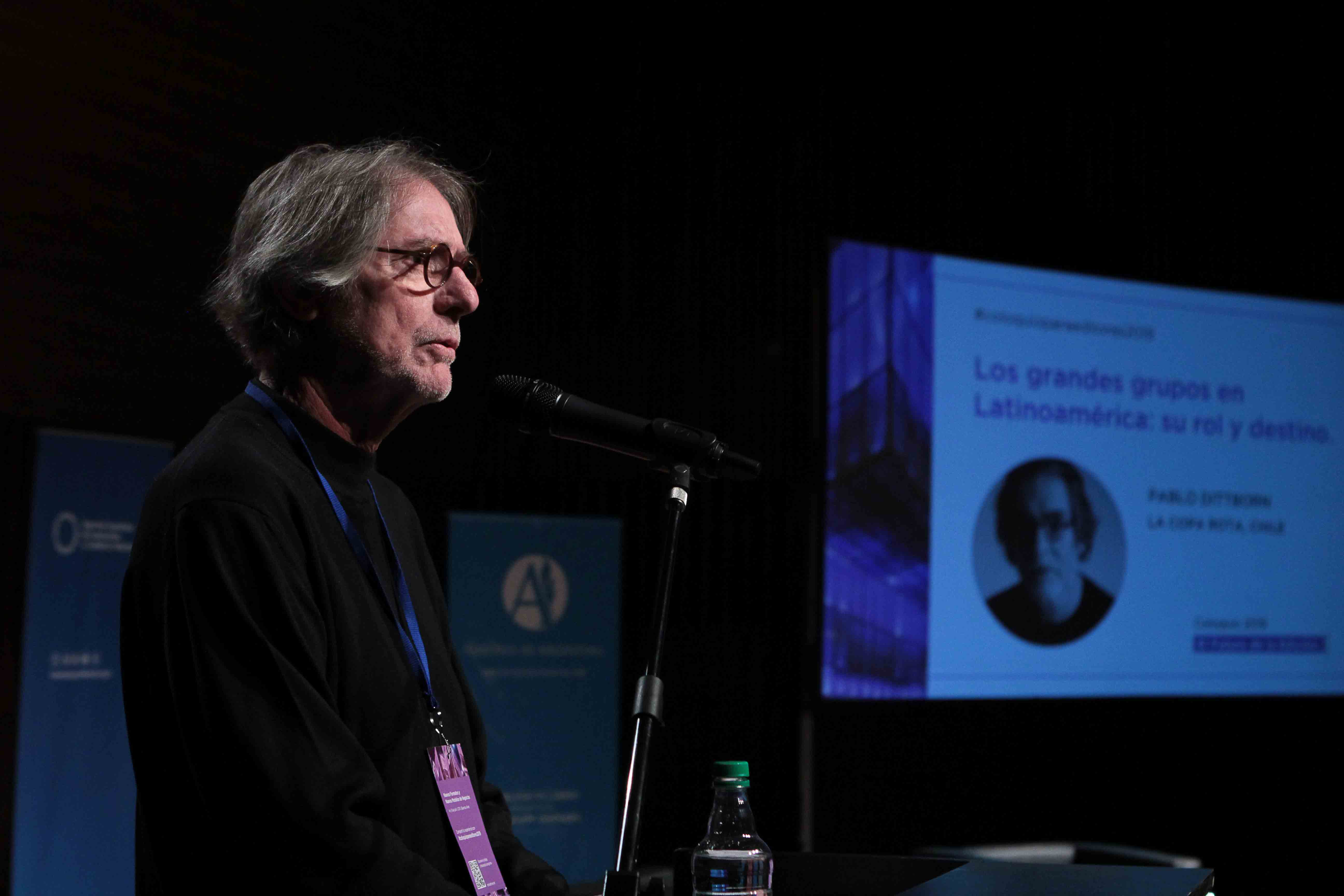
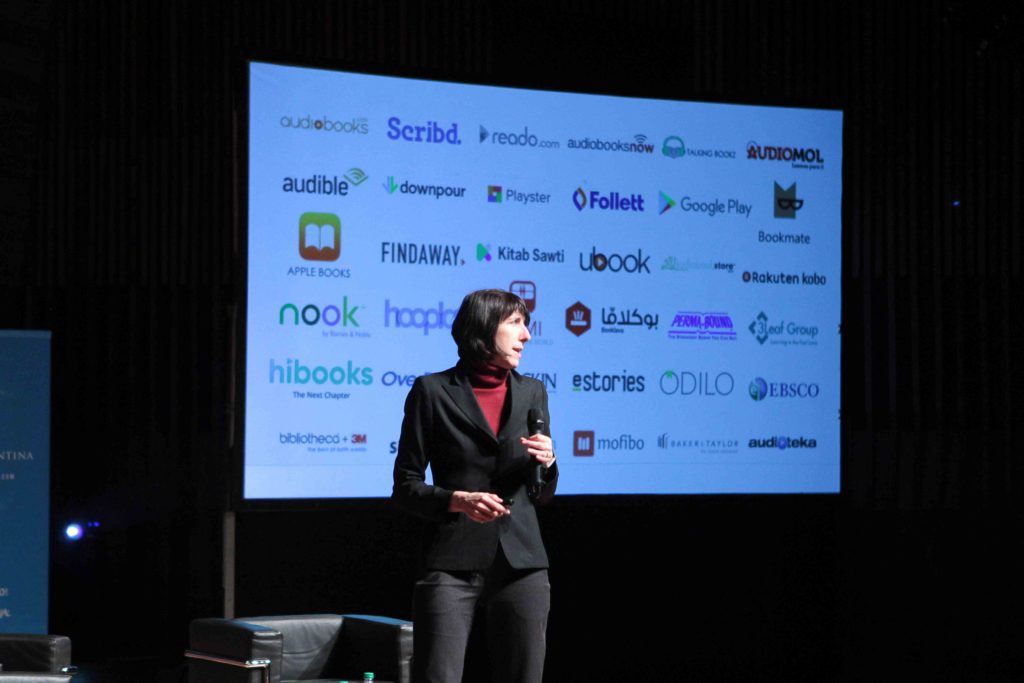
Joaquín Gil Paricio, founder of Cúspide bookstores in Argentina and it’s current director, in a dialogue with Carlo Carrenho (Publishnews) and Ricardo Menoyo (Docuprint), crudely explained the drowning situation of the physical bookstore channel, which cannot keep up with the increasing new books suply, and whose operating margins are minimal. He also made it clear that his strategy is to give space to independent publishers, who form the “backlist” of low per unit sales, but who represent 17%, and must be supported. He regretted that bookstores were left out – by mistake – of the recent law, which allows publishers and printers to reallocate or discount VAT. «We need to open more bookstores to supply areas where books do not arrive, but these investments could only be made with that tax relief.»
The Colloquium closed with a presentation of Mercado Libre, the largest e-commerce platform in Argentina and Latin America. While books (classified as entertainment) within the total number of products occupy a very small place – 3% in units – their growth is high and sustained. They outperform the growth rate of the platform itself. They also reveal that book prices are already at market levels, leaving behind the years of most unauthorized sales of low prices. The most important evidence was the great opportunity it offers for e-commerce across the continent, the channel that is definitely transforming the publishing industry.
